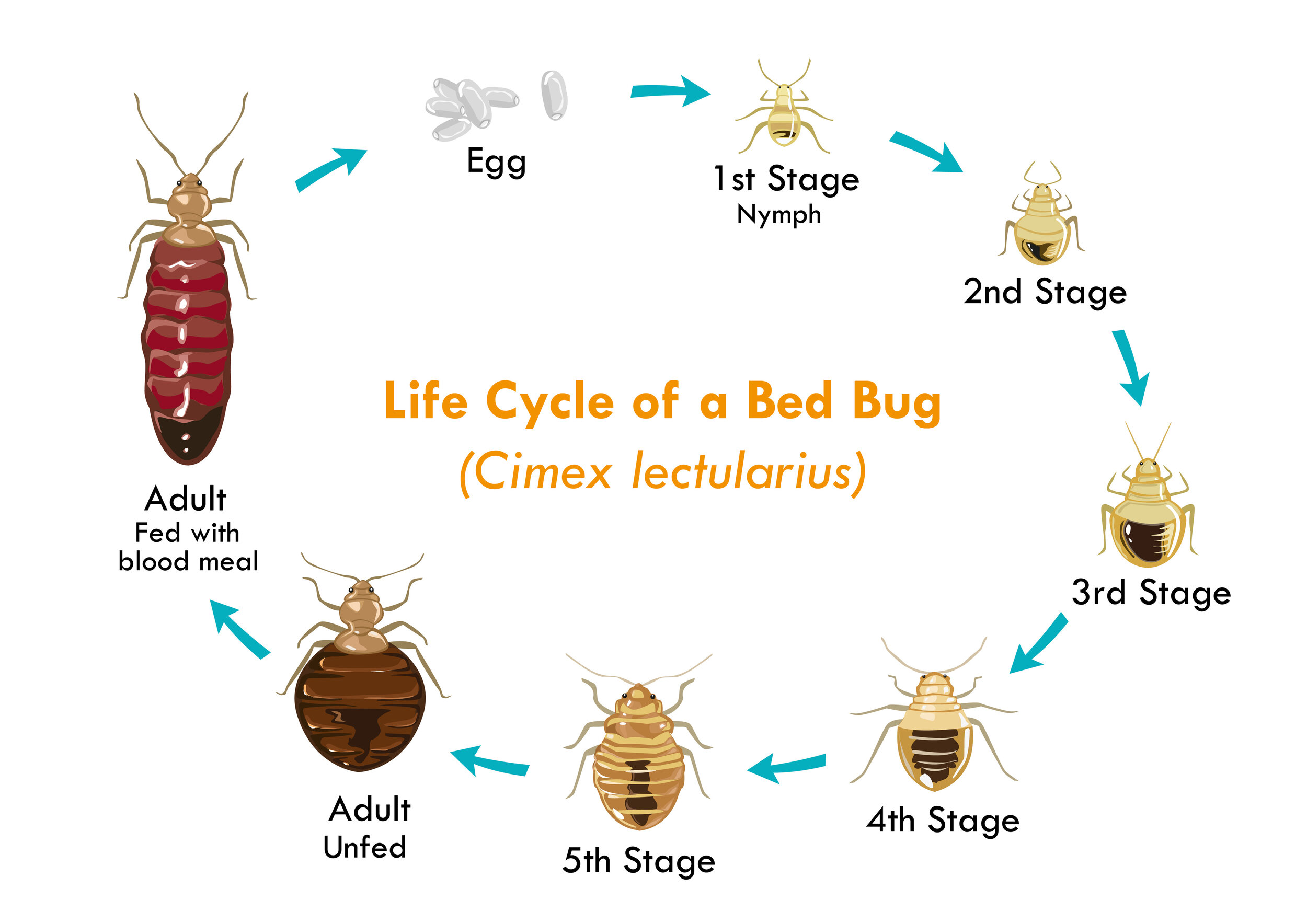Effective A1 Bed Bug Treatment Houston - Do Away With Bed Bugs
Effective A1 Bed Bug Treatment Houston - Do Away With Bed Bugs
Blog Article
Recognizing the Lifecycle of Pests for Targeted Control Methods
Understanding the lifecycle of parasites is a basic aspect of effective insect management strategies. With a much deeper understanding of how bugs develop and thrive, tailored control techniques can be developed to address certain factors in their lifecycle, inevitably leading to more effective bug monitoring outcomes.
Importance of Comprehending Pest Lifecycle
Understanding the lifecycle of pests is essential for developing efficient and targeted control techniques in insect management. By understanding the various stages a pest goes with from egg to adult, insect control experts can identify at risk points in the lifecycle where treatment can be most effective.
Moreover, acknowledging the details ecological conditions necessary for each stage of the parasite's lifecycle can lead choices on environment modification or exclusion techniques to interfere with the lifecycle and minimize parasite populaces. This understanding makes it possible for pest administration specialists to apply positive steps instead than counting only on reactive treatments, leading to even more lasting and lasting bug control options. Ultimately, a detailed understanding of bug lifecycles empowers pest control specialists to customize their techniques successfully, reducing environmental effects and optimizing control end results.
Key Phases in Bug Growth
To properly implement targeted control techniques in insect administration, an essential facet depends on adequately recognizing and comprehending the key stages in pest growth. Bug development normally is composed of several essential phases that are vital for their lifecycle and administration. The initial stage is the egg stage, where parasites lay eggs that later on hatch into larvae. Larvae after that progress into pupae, a stage where they undergo metamorphosis prior to becoming grown-up parasites. Understanding these stages is essential as it helps in determining prone points in the lifecycle where control procedures can be most reliable.

Susceptabilities in Pest Lifecycle
Throughout the different stages of a parasite's lifecycle, distinctive susceptabilities emerge that can be purposefully targeted for effective control measures (A1 bed bug removal houston). One crucial vulnerability exists in the egg stage, where pests are commonly extra prone to specific insecticides or biological control representatives due to their soft external covering, making them less complicated targets for intervention. Comprehending these susceptabilities in the insect lifecycle is vital for establishing reliable and precise control strategies that properly manage bug populaces while decreasing environmental influence.
Executing Targeted Control Procedures

Carrying out targeted control steps commonly includes a multi-faceted technique. This might include habitat modification to make the environment less congenial to pests, such as getting rid of standing water for mosquito control or securing entry points for rats. Furthermore, biological control approaches can be made use of, where natural killers or microorganisms are introduced to keep bug populations in check.
Chemical control, such as the cautious application of chemicals, is an additional typical approach. However, it is vital to use these substances sensibly to lessen environmental effect and prospective damage to non-target types. Integrated Insect Management (IPM) approaches that integrate Web Site different control actions in a coordinated and sustainable manner are typically one of the most efficient in accomplishing long-term insect monitoring goals. check my reference By carrying out targeted control actions based upon a detailed understanding of pest lifecycles, pest populations can be effectively managed while decreasing dangers to human wellness and the atmosphere.
Improved Bug Management Practices

Moreover, the unification of organic control representatives, such as all-natural killers or microorganisms of insects, can help minimize reliance on chemical pesticides and promote an extra well balanced community. Applying physical Discover More Here barriers and traps can likewise become part of improved parasite management techniques, providing non-toxic and targeted remedies for insect control. Furthermore, the usage of pheromones and other semiochemicals can interfere with pest mating patterns and interaction, bring about decreased parasite populaces over time.
Verdict
By determining key stages in pest development and vulnerabilities in their lifecycle, targeted control actions can be implemented to minimize parasite populaces. Improved insect management techniques can help reduce the reliance on broad-spectrum chemicals and advertise even more environmentally pleasant and sustainable bug control approaches.
Comprehending the lifecycle of insects is crucial for creating reliable and targeted control methods in parasite management. By comprehending the different phases a bug goes through from egg to grownup, pest control professionals can identify susceptible factors in the lifecycle where treatment can be most successful. Eventually, a comprehensive understanding of parasite lifecycles empowers insect control specialists to customize their approaches efficiently, taking full advantage of and decreasing environmental effects control end results.
By carrying out targeted control steps based on a detailed understanding of bug lifecycles, pest populaces can be properly managed while reducing threats to human wellness and the setting.
By identifying vital phases in insect development and vulnerabilities in their lifecycle, targeted control steps can be executed to minimize insect populations.
Report this page